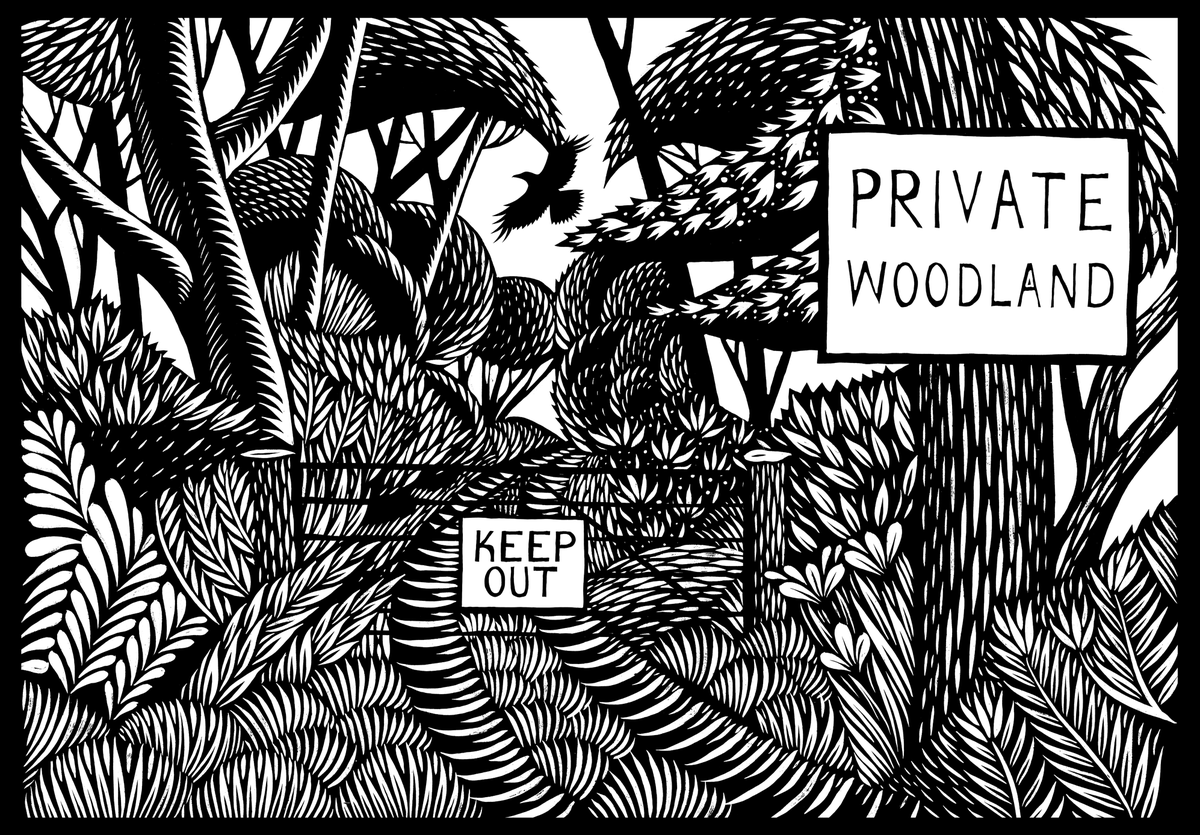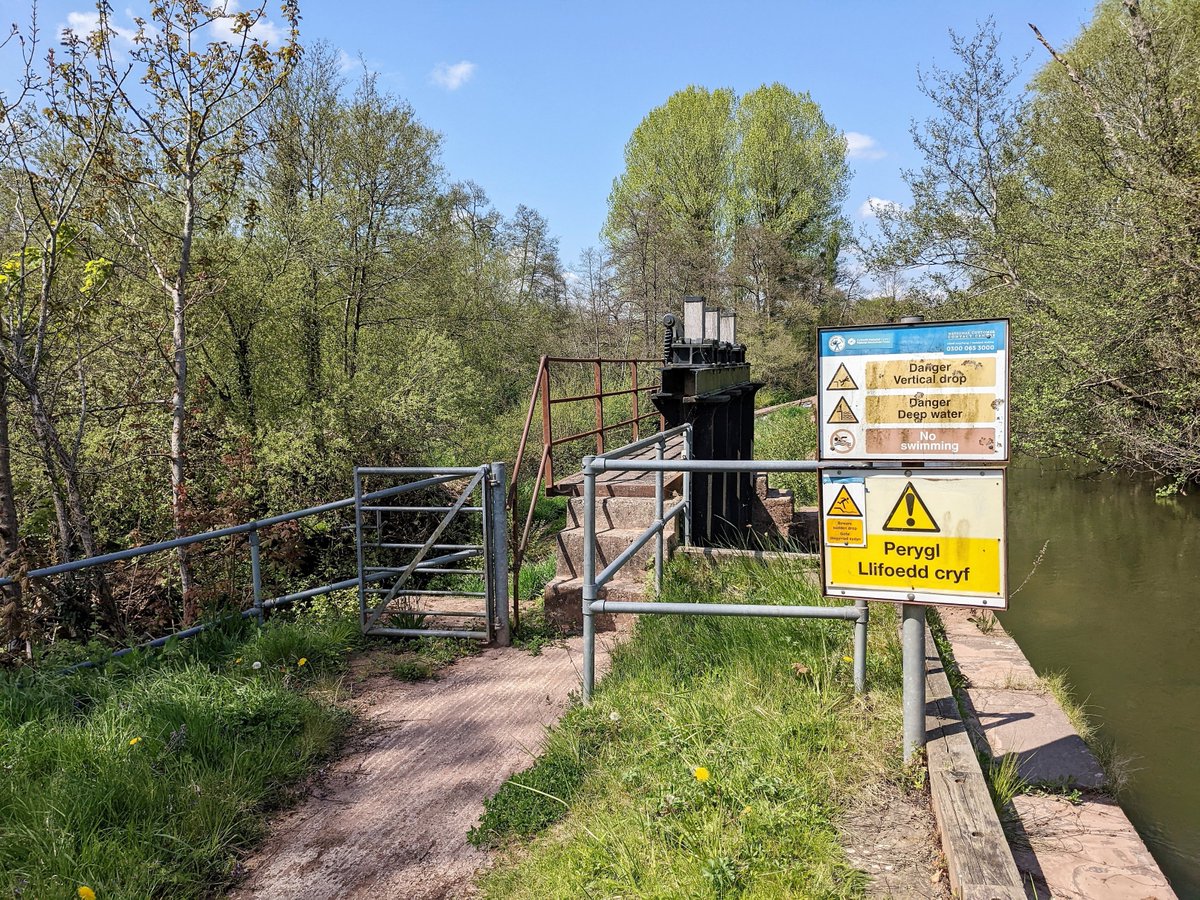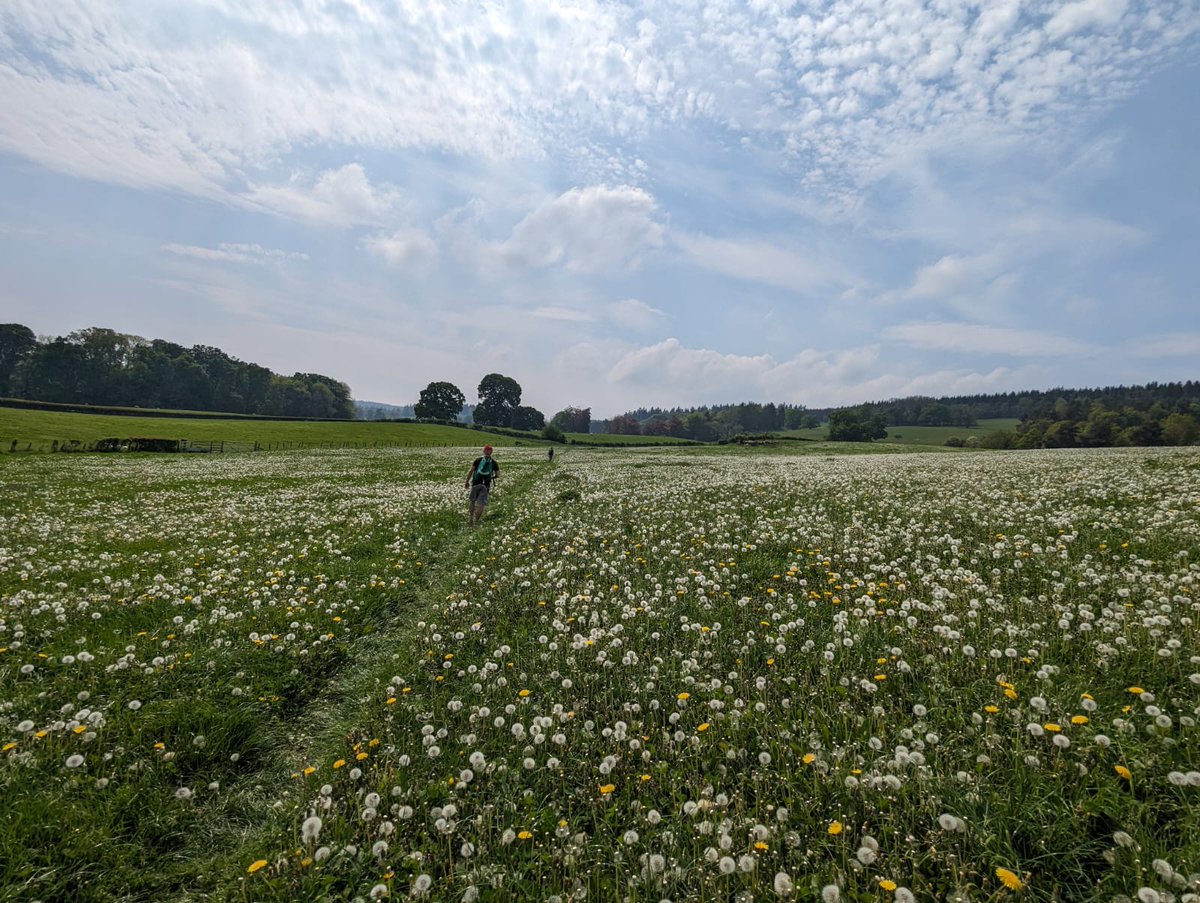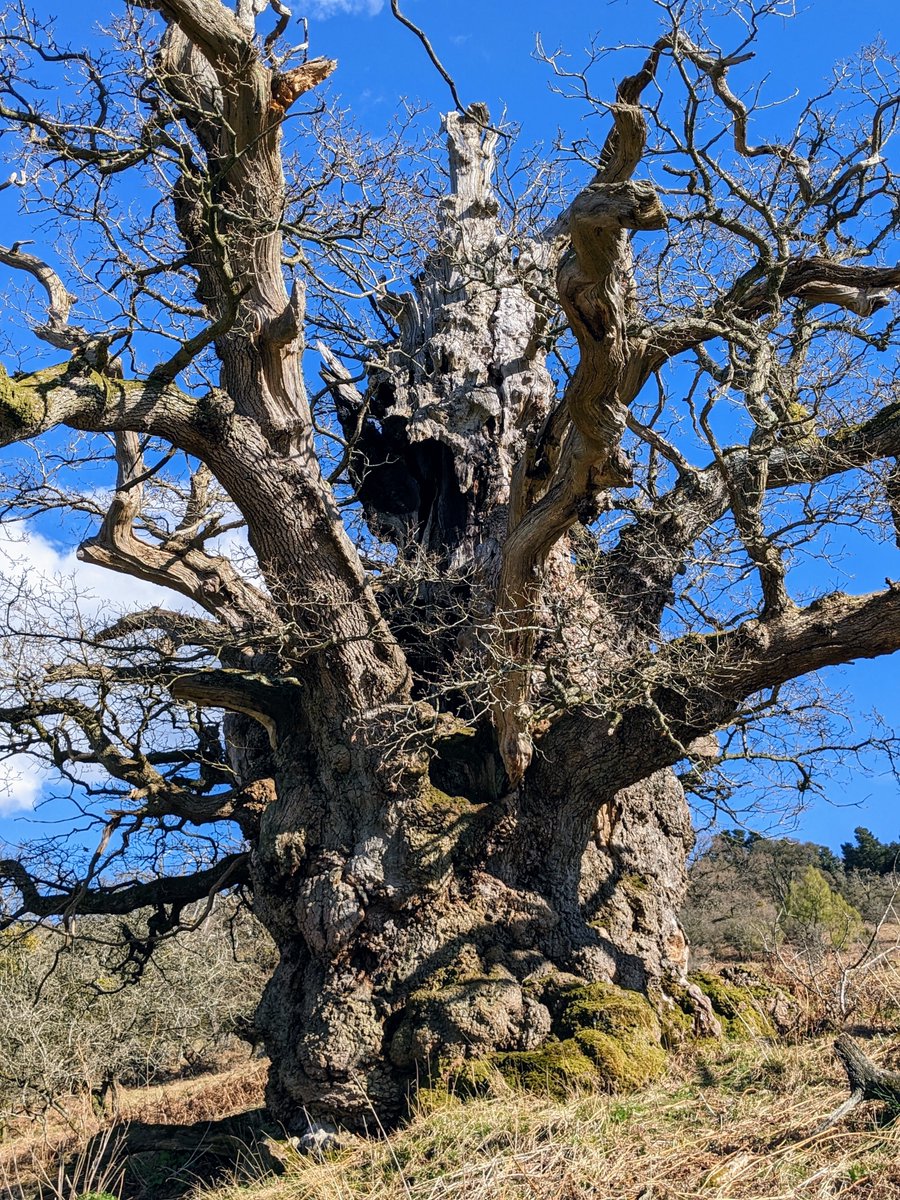While we take stock of big, new losses in Dartmoor, I want to take a moment to talk about the micro enclosures happening every day around the country. They’ll never make the headlines. But they completely shape the way we live our lives.
This is mine. 🧵
This is mine. 🧵

Near where I live is an old weir. I know weirs are bad for rivers but I'm extremely fond of it. I swim here. I watch the dippers when I’m sad. If I need to clear my head, this is where I come. You can sit on its wall, water at every side, and simply be.
It’s part of who I am.
It’s part of who I am.

But about 15 years ago @NatResWales decided to mitigate the weir’s impact on the river. Salmon were struggling to make their spawning grounds. Trout numbers were in decline.
The weir was another obstacle in a deteriorating ecosystem, beleaguered by agricultural runoff upstream.
The weir was another obstacle in a deteriorating ecosystem, beleaguered by agricultural runoff upstream.
Rather than destroy the weir - now an 18th century heritage asset - the solution was to build a series of fish steps.
£600,000 of public money was (rightly) spent to construct a ziggurat of ponds the fish could use to bypass the weir walls.
It's... well, it's pretty cool.
£600,000 of public money was (rightly) spent to construct a ziggurat of ponds the fish could use to bypass the weir walls.
It's... well, it's pretty cool.

But at the same time, a hydroelectric station was constructed at the behest of the adjacent landowner, to power his giant Tudorbethan mansion and the grid.
The weir channel was extended to service it. The public bridge was removed and the new access routed through his land.
The weir channel was extended to service it. The public bridge was removed and the new access routed through his land.

And so, the little enclosures began. A padlocked gate went up.
Now, instead of walking across an open bridge on public land, you had to vault this wooden threshold.
And so went the access of anyone old or infirm.
And so too the access of anyone not brazen enough to cross.
Now, instead of walking across an open bridge on public land, you had to vault this wooden threshold.
And so went the access of anyone old or infirm.
And so too the access of anyone not brazen enough to cross.

No problem for me: I’m pretty brazen. But then I’m a cocky white boy. It’s easy for me to be brazen.
I continued my visits to the weir.
I continued my visits to the weir.
But I was not the only person for whom the weir served as a weird, unofficial sanctuary.
Despite being a rural area, access to the immediate countryside here is actually very limited: especially to the river. You can read more about that here:
Despite being a rural area, access to the immediate countryside here is actually very limited: especially to the river. You can read more about that here:
https://twitter.com/jm0ses/status/1428353977310011393
The weir was one of the few accessible places nearby that wasn't a tarmacked track, or a trashed, industrialised forest, or a barren, mud-wrecked field.
It was a place to come, to watch, to think, to not think at all. A place to *be*, rather than to simply pass through.
It was a place to come, to watch, to think, to not think at all. A place to *be*, rather than to simply pass through.
Most of all, it was beloved by the young.
Sliding down the weirfall has been a rite of passage for decades. It is that ideal, interim space teenagers love best: somewhere you can sense you maybe aren’t *officially* allowed. But where there is nobody to stop you either. Utopia.
Sliding down the weirfall has been a rite of passage for decades. It is that ideal, interim space teenagers love best: somewhere you can sense you maybe aren’t *officially* allowed. But where there is nobody to stop you either. Utopia.

Yet the value of such places are rarely registered by the state.
Kids don’t write feedback forms, or respond to public consultations. “I want a place to get the fuck away from my parents” is not considered a legitimate metric of public wellbeing (though it should be).
Kids don’t write feedback forms, or respond to public consultations. “I want a place to get the fuck away from my parents” is not considered a legitimate metric of public wellbeing (though it should be).
Kids don’t see the world like the State. So the State doesn’t see them either.
To @NatResWales the weir is just an awkward heritage asset. It's not a designated bathing spot, even though it is. It's not a nature reserve, even though it is. It's not a place to play -- yet it is.

To @NatResWales the weir is just an awkward heritage asset. It's not a designated bathing spot, even though it is. It's not a nature reserve, even though it is. It's not a place to play -- yet it is.


Now, it takes more than a padlocked gate to stop most kids going where they please. So an arms race began.
First, chains were installed as a deterrent.
Then, during lockdown, security cameras started to appear...
Our peaceful idyll was steadily transforming into Fort Knox.

First, chains were installed as a deterrent.
Then, during lockdown, security cameras started to appear...
Our peaceful idyll was steadily transforming into Fort Knox.


I continued my visits. Now with a wave at the cameras, or the occasional rude gesture.
I gathered the agri-trash that washed up on the islands. I watched sparrowhawks hunt unfortunate pipistrelle. I hammocked beside the crashing waters, and awoke eye level with the kingfishers.
I gathered the agri-trash that washed up on the islands. I watched sparrowhawks hunt unfortunate pipistrelle. I hammocked beside the crashing waters, and awoke eye level with the kingfishers.
But I noticed that less kids came and far fewer adults. Only the brazen continued.
It affected me in other ways. When my mother was terminally ill, I couldn't take her to see the birds - she had no chance of climbing the gate. I tried to describe my visits. It wasn't the same.
It affected me in other ways. When my mother was terminally ill, I couldn't take her to see the birds - she had no chance of climbing the gate. I tried to describe my visits. It wasn't the same.
I wrote letters to @NatResWales, who ignored me. I wrote letters to the landowner, who ignored me too.
The fishing association does its best for the river, but seemed suspicious of anyone pushing for better access.
The local councillors didn’t seem to care.
The fishing association does its best for the river, but seemed suspicious of anyone pushing for better access.
The local councillors didn’t seem to care.
Then one day I had a set-to with the landowner’s gardener. He refuted the existence of the old bridge, whose supports lined the channel between us. He told me terrible tales of the “sex and drugs” teens had been having. “Cool”, I thought. It was clear my antagonist did not agree. 

Last month came. Mr Darwall won his wild camping case. And I was feeling seriously strung out from back to back days organising protests against it.
“Go outside”, my lovely @Right_2Roam co-organiser hissed. So, as usual, I went to the weir...
...and found this in the way.
“Go outside”, my lovely @Right_2Roam co-organiser hissed. So, as usual, I went to the weir...
...and found this in the way.

Can’t climb that, I thought. Heart sinking. Not without sore fingers & serious drama.
So it goes: a strata of my self-geology. At the whim of some guy who puts giant marble tigers on his drive.
I’m not used to that feeling. I'm used to brazen buying me a lot of spare freedom.
So it goes: a strata of my self-geology. At the whim of some guy who puts giant marble tigers on his drive.
I’m not used to that feeling. I'm used to brazen buying me a lot of spare freedom.
But the next day I discovered the limits of brazen were not quite extinguished. With a delicate traverse, I could swing round the fence and get back to the weir.
But so goes access for another, final, group of people. I doubt we’ll see many children here this summer.
But so goes access for another, final, group of people. I doubt we’ll see many children here this summer.
In isolated communities it can feel like you're the only one who cares about such things - or willing to do something about them.
Enclosure happens where resistance is low. Customary rights are stripped away not because they're just, but because they can go unchallenged.
Enclosure happens where resistance is low. Customary rights are stripped away not because they're just, but because they can go unchallenged.
Spaces like these are important. They're part of a constellation of possibility. They facilitate different thoughts, enable other kinds of conversation.
With each enclosure we lose alternative ways of being. They don't exist in government designations. But they matter.
With each enclosure we lose alternative ways of being. They don't exist in government designations. But they matter.
As I headed home, I glanced down at a shape in the silty residue.
A footprint.
A naked footprint. Must be a swimmer – in January! Must be brazen. They had found a way through fences, chains and cameras to maintain possibility.
Somewhere, in my wee rural suburb, is a friend.
A footprint.
A naked footprint. Must be a swimmer – in January! Must be brazen. They had found a way through fences, chains and cameras to maintain possibility.
Somewhere, in my wee rural suburb, is a friend.

So this year @right_2roam is going local. We want to help people across the country fight the enclosures happening because of the invisible lines dividing us, as much as the physical fences which separate us.
Get in touch at: righttoroam2020@gmail.com. All we have is each other.
Get in touch at: righttoroam2020@gmail.com. All we have is each other.

P.S @NatResWales - you appear to have the time and money to massacre the riparian trees at the weir, and mow down the bushes in which I saw my first ever firecrest.
I reckon you've got the time and money to restore the access you took away. How about it? 🙂
I reckon you've got the time and money to restore the access you took away. How about it? 🙂

UPDATE: if you have a story of your own local micro-enclosure then the Press Association would love to hear from you for a story.
Reply to this thread or email danny.halpin@pa.media with the details. Include as much evidence / context as possible!
Reply to this thread or email danny.halpin@pa.media with the details. Include as much evidence / context as possible!
• • •
Missing some Tweet in this thread? You can try to
force a refresh












